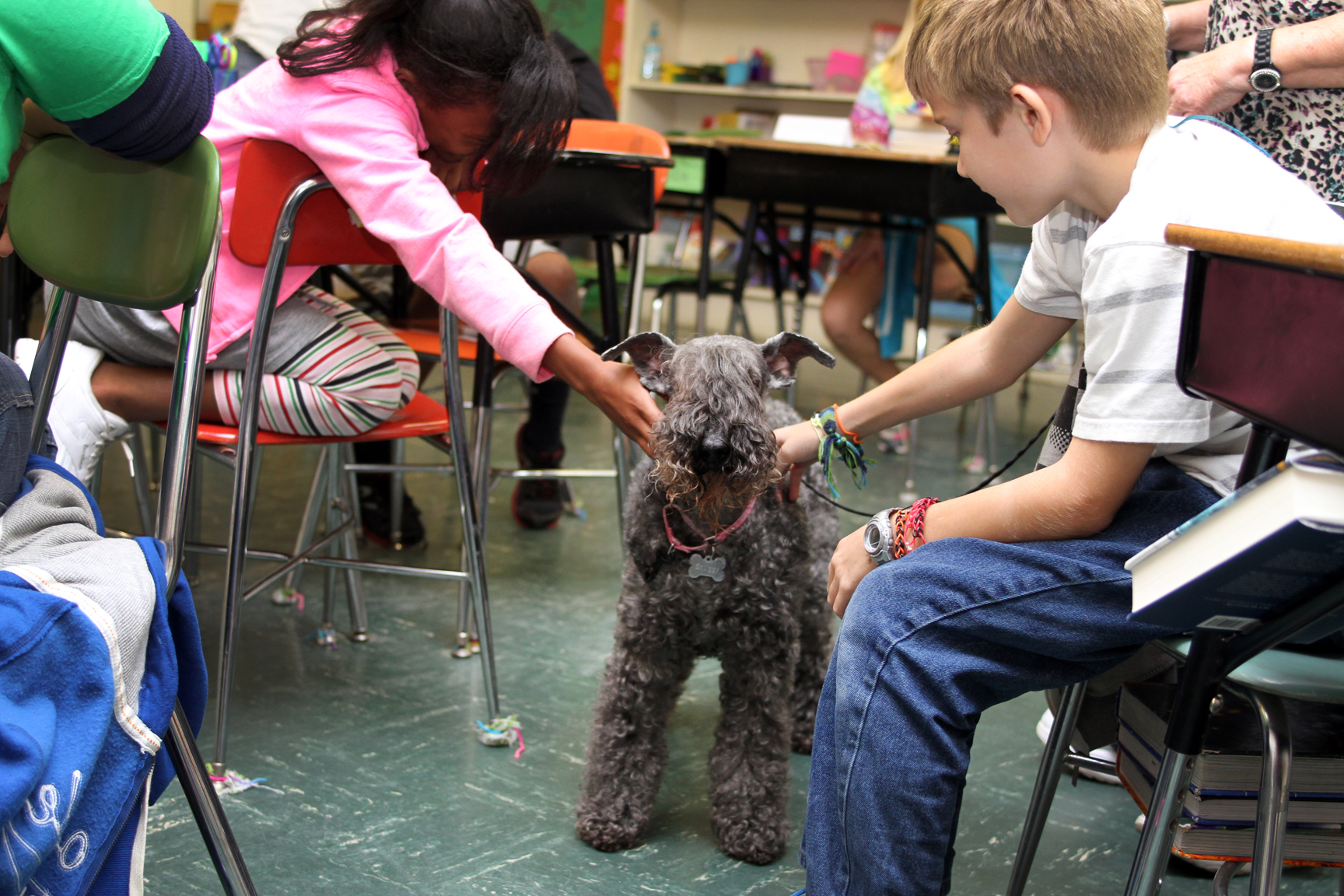The Pet Responsibility Program is taught entirely by volunteers, and includes a total of six lessons for 4th grade students. The program is presented as an integral part of participating schools’ Character Education Program.
Pet Responsibility students learn about the basic needs of animals (nutritious food, fresh water, warm and dry shelter, exercise, etc.), the importance of having pets spayed or neutered to prevent pet overpopulation, how to keep their pets safe and healthy, and how to safely handle encounters with unknown animals. Students discover that they can be advocates for animals by sharing the information they learn about responsible pet care with their friends and family, so that Guilford County can be a safer place for people and animals. Guest speakers (including animal control officers) and visits from insured therapy dogs and their owners enhance the learning experience.
Pet Responsibility classes teach kids more than just how to take good care of pets. Students are encouraged to think about what it means to be a responsible person, and how the decisions that individuals make can effect entire communities. They also learn about patience, compassion, and the importance of standing up for others.
The Guilford County Pet Responsibility Program is affiliated with Juliet’s House Animal Rescue.
Why Guilford County Needs the Pet Responsibility Program
There’s a sad problem in North Carolina and throughout the Southeast. It’s pet over-population, and it leads to animal neglect, abuse, abandonment, and high euthanasia rates. And it’s not just animals that are affected. Pet over-population and neglect create serious health and quality of life issues for people as well, especially children. The risk of dog bites increases in neighborhoods with large numbers of unwanted pets, and witnessing neglect and cruelty towards animals can have real and lasting emotional impacts.
The good news is that pet overpopulation is a “fixable” problem. Because of robust spaying and neutering assistance programs, some northeastern states like New Hampshire and Massachusetts no longer have to euthanize (put down) healthy, adoptable animals. The overpopulation problem has decreased so dramatically in these areas of the country, that shelters in the Northeast now regularly take in truckloads of unwanted dogs and cats from overcrowded southern shelters.
Educating communities about pet overpopulation and its sad consequences is a critical part of solving the problem.
